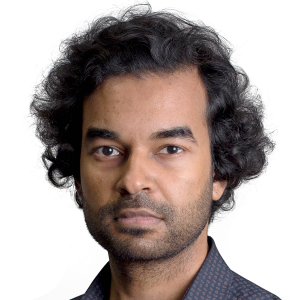The year that changed London


Roula Khalaf, Editor of the FT, selects her favourite stories in this weekly newsletter.
To illustrate the historian’s dilemma, EH Carr used the metaphor of a road accident. An inebriated Jones in a car with faulty brakes knocks down Robinson as he crosses the street at a blind corner to buy cigarettes. The cause of the fatality could be as proximate as Jones’s last drink before his journey or as remote as Robinson’s acquisition of a smoking habit many years back, with myriad explanations ranged in between.
The challenge of causality spreads to new questions all the time. At some point, historians will have to work out how London reversed the postwar decay that sapped its wealth and brought its population down to 6.8m by 1981. The cause of the revival might be as structural as the city’s central location in the world at a time when a great age of globalisation was stirring. Or it could be a specific act of human agency, such as Michael Heseltine’s renovation of the rotting docklands during his time as Conservative environment secretary.
Perhaps this year represents the 30th anniversary of the real turning point. Two things happened in 1986 that mark it out as the most important year in London’s modern history. Margaret Thatcher signed the Single European Act in February, deepening the internal market from which the city (and the City) has made a killing. The intensified mobility of capital and people around the continent was always going to enrich an open, business-friendly cosmopolis with an ancient history of soaking up outsiders and making them useful. The proliferation of Spanish restaurants, the trading floors filled with Swedes and Frenchmen: it all flows in part from the provisions of the Act.
Then, in October of that year, a Big Bang of deregulation opened up the City’s ossified financial institutions. Fixed commissions and other restrictive practices made way for a sharper business culture under foreign management. The London Stock Exchange, against which an antitrust case had previously been brought, became a private company.
London’s primacy among financial centres was slowly restored but the rupture turned out to be cultural, too. Ways of doing business changed beyond the City. The cascade of money shook up the dining scene and the skyline. It made a pathology of our housing market. Few conscious acts of government have been as consequential since the construction of the welfare state after the second world war.
At this point, Carr might object that 1986 was just the equivalent of Jones’s last drink. London’s comeback, its surging population of nearly 9m, is the accretion of uncountable reforms and accidents over decades. But without the two big moments of 1986, it is hard to see the city tracing the vertiginous trajectory since then.
The ultimate proof of their import is that we still talk about them. The referendum on EU membership is an argument about the openness and loss of formal sovereignty that was codified in the Single European Act. The faintly ghoulish conjecture among Tories about which way Thatcher would vote were she alive usually mentions her apparent regret at signing the document. Thirty years to the day after she did, her successor but three as prime minister, David Cameron, was shuttling to Brussels to loosen Britain’s involvement in the European project.
As for the City, the debate over whether and how to limit its activities has not ceased since the crash. The momentum behind re-regulation seems to have peaked and the government increasingly talks up the value of financial services. But these adjustments of policy and rhetoric are themselves controversial.
Thirty years ago, the LSE was a relic; now it is in line for a merger with Deutsche Börse, a German exchange. Such a deal would seem like the logical conclusion of the Big Bang, which allowed foreign forces to disrupt a hidebound and parochial City. And so the events of 1986 continue to cascade into our lives. Even the population decline was arrested in the vicinity of 1986, so that 1991’s census became the first since 1951 to record more Londoners than a decade earlier.
Something else changed that year. Thatcher abolished the troublesome, leftwing Greater London Council, leaving the capital without a citywide government for 14 years. During that period, London become richer, fuller with people and ever more acclaimed as the — not just a — world city. For Labour’s Sadiq Khan and the Tory Zac Goldsmith, rivals to be elected mayor in May, the distressing lesson of 1986 might be the sheer inconsequence of that coveted office. To a large extent, London is what it is because of two strategic judgments made by national government while they were at school. Mr Goldsmith is a Eurosceptic and Mr Khan no natural tribune of the bankers. But whoever wins should honour the hinge year in London’s renaissance.
Letter in response to this column
If any year did ‘change London’, it wasn’t 1986 / From Nick Sutcliffe
Comments